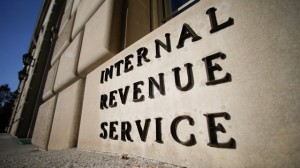In this week’s edition of the Monday Muni Minutes – MCDC Next Steps, SEC’s $150 Million Budget Boost and Detroit Exits Chapter 9 with a Novel Bond Dance..
CURRENT EVENTS
SEC News this Week…
Gaunt: MCDC Enforcement Actions Will Make Clear SEC’s Views (B Buyer, December 11, 2014)
Widespread Misstatements – those are the ominous words issuers heard at the GFOA Winter Meeting on Thursday.
LeeAnn Gaunt, chief of the SEC enforcement division’s municipal securities and public pensions unit told issuers that offering document misstatements discovered during the MCDC Initiative have been widespread.
She also noted that errors occurred after 2012, which was when the SEC issued its risk alert to the market that increased scrutiny was coming. Some participants argued that the mistakes dwindled significantly after 2012, but Gaunt contended that this was not the case.
Uh Oh…
Issuers pressed for more guidance versus regulations while bond counsel expressed frustration over the vague ruling on King’s Canyon School District on what is deemed to be a material misstatement. Gaunt again declined to elaborate.
“The way we speak is through enforcement,” Gaunt said. “I expect that [future MCDC settlements] will be more detailed than King’s Canyon.”
Issuers were very concerned about the amount of resources this “burdensome regulatory framework” would cost, to which Gaunt replied that the SEC did not require issuers to spend anything on the MCDC, as it was strictly a voluntary program.
“There is no big regulatory framework,” Gaunt said, pointing to the anti-fraud provision of the federal securities laws as her office’s primary tool. “Don’t lie, cheat or steal. That’s the rule.”
[Editor’s note: The “strictly a voluntary program” really caught my attention. Let’s look at this in the context of what SEC Commissioner Gallagher said last week on the day the MCDC was due…increased muni enforcement and more staffing for reviews are planned. See below for related news on the SEC ‘s budget from the new continuing resolution…awaiting the President’s signature.]
Lawmakers Push Vote on Spending Bill; SEC Funding Boosted (ThinkAdvisor, 12/10/14)
Just coming in under the wire this weekend, the House and Senate passed the Consolidated and Further Continuing Appropriations Act of 2015, which funds most of the government through September of next year.
Within that bill, is included $150 million in additional funding for the Securities and Exchange Commission’s budget – which is $200 million less than what was requested by the President.
A SEC spokesperson said in a Wednesday statement that the agency is “pleased that the draft FY 2015 appropriations bill includes additional funds for the SEC. These funds are critical to the SEC’s ability to fulfill its important mission, including permitting us to increase our examination coverage and to continue to hire industry experts and modernize our technology.”
Not everyone was happy though.
Former House Financial Services Committee Chairman Barney Frank wanted the bill defeated over provisions known as the “swaps push-out” rule. He called it “a substantive mistake” and “terrible violation of the procedure that should be followed on this complex and important subject.”
[Editor’s note: So, what do you think is going to happen next? Voluntary or not, an agency with focus on municipal activity now appears to have more funding…]
While Over at The IRS…
Georgia School System Working to Settle Tax Dispute with IRS (B Buyer, December 10, 2014)
The Cherokee County, GA School System disclosed in a material event notice on EMMA last week that it is negotiating with the IRS regarding an arbitrage issue related to its 2007 Bonds.
At issue: the school system issued $125 million of series 2007A bonds to finance facilities and $41.92 million of series 2007B bonds, which advance refunded bonds from 2001 and 2003.
During the routine audit of both series of bonds, the IRS noticed that, some of the 2007B proceeds funded Treasuries in the escrow – and that these Treasuries were earning more than the bond yield.
Under arbitrage rules, escrow earnings cannot be materially more than the bond yield – or they become taxable arbitrage bonds. A way to avoid this is by purchasing or rolling over to zero-coupon SLGS to bring the yield down over the duration of the escrow.
What happened in Cherokee’s case is that the escrow agent (BNY Mellon Trust Co, N.A.) missed timely rolling over the Treasuries into SLGs, so $18.34 million sat uninvested for about a week…earning nothing. The rebate amount in question is $10,820.96, plus negotiated penalties.
Even though these funds did not earn any interest, the IRS agent imputed interest on the funds…at the bond yield – which made the total yield materially more (meaning more than one-thousandth of one percent).
Cherokee, although it did nothing wrong, is proposing to settle with the IRS because the cost of litigation would be much higher. It also hopes the escrow agent will offset the settlement costs. Ultimately, if a settlement is not reached, the bonds could be declared taxable.
[Editor’s note: A tiny example of how something as little as a missed date can cause big headaches.]
OUT & ABOUT
Conferences/Events for the rest of 2014: No conferences or events in December 2014
Conferences in early 2015:
The Bond Buyer’s National Outlook 2015 Conference, January 27, 2015
Metropolitan Club, New York, NY
The Bond Buyer’s Texas Public Finance Conference, February 9-11, 2015
Omni Barton Creek Resort & Spa, Austin, TX
The Bond Buyer and BDA’s National Municipal Bond Summit March 1-3, 2015
The Westin Beach Resort & Spa, Fort Lauderdale, FL
Editor Commentary: The Curtain Rises on the New Detroit…Exiting Chapter 9…What’s Next?
The City of Detroit, MI, which filed for the largest municipal bankruptcy in history in July 2013, finally exited Chapter 9, last Wednesday.
It’s hard to fathom the ground that has been covered in the last 18 months…starting with the short, but impactful four-sentence bankruptcy judge decision to allow Detroit to file for reorganization protection as follows:
After reading Mr Orr’s letter, the Financial and Operating Plan, and the report to creditors., I have come to four conclusions
- Right now, the City cannot meet it’s basic obligations to its citizens
- Right now, the City cannot meet it’s basic obligations to its creditors
- The failure of the City to meet its obligations to its citizens is the primary cause of its inability to meet its obligations to its creditors
- The only feasible path to ensuring the City will be able to meet its obligations in the future is to have a successful restructuring via the bankruptcy process that recognizes the fundamental importance of ensuring the City can meet its basic obligations to its citizens.
Detroit, which was founded in 1701, was the titan of industry for generations. Primarily known for being the “heartbeat and hub” of the auto industry, its thriving economy fell on hard times in recent decades, coupled with mass population loss and severe financial mismanagement.
Businesses crumbled, houses were vacated and Detroit became almost like two cities…while certain areas remained pristine, thousands of homes outside of the city fell into foreclosure, with unreliable utilities and little protection from vandalism and crime.
During the bankruptcy process, the depth and breadth of the reorganization brought many participants to near- loggerheads.
loggerheads.
Employees, retirees, pension funds, bondholders, insurers and creditors – some secured and some not – all gathered to defend their positions. The brutal reality that the city was going to need to shed $7 billion of its $18 billion in debt meant that there was plenty of pain to go around…
Detroit’s bankruptcy was one of the first where pension obligations were determined to be vulnerable in such proceedings. While their loss was mild compared to bondholders and other creditors – it was still a tremendous point of contention for some retirees who lived on $20,000 a year.
In the end, many pensioners lost around 4.25%, while bondholders, insurers and other creditors bore the remaining brunt of the $7 billion debt elimination. “What happened in Detroit must never happen again,” federal Judge Steven Rhodes said, when he approved that bankruptcy plan last month.
So…what’s next?
“We’re going to start fresh tomorrow and do the best we can to deliver the kind of services people deserve,” said Mayor Mike Duggan. It will be a long road to recovery…will little margin for financial error for the foreseeable future.
As part of the bankruptcy approval plan, Detroit issued $1.28 billion in debt on Wednesday, the same day it officially exited Chapter 9. Interestingly enough, none of it was sold on the public market.
According to its bond counsel, the four deals completed required some “novel financing structures” in order to comply with the strict bankruptcy order, yet remain in compliance with Michigan municipal laws.
Add to that creditors, bankruptcy attorneys and consultants who do not understand some of the nuances of public financing…I bet that made for some interesting workgroup meetings!
 Ultimately, a $275 million private placement with Barclays seems to be a real first…where the City tapped its income-tax revenue stream to secure the bonds. This piece, issued roughly half taxable and half tax-exempt, is only for 150 days, with the city needing to refinance them on the public market during that time.
Ultimately, a $275 million private placement with Barclays seems to be a real first…where the City tapped its income-tax revenue stream to secure the bonds. This piece, issued roughly half taxable and half tax-exempt, is only for 150 days, with the city needing to refinance them on the public market during that time.
Another $287.5 million of unlimited tax GOs, issued through the Michigan Finance Authority, also added security via a piece of their property tax millage to the creditor group.
Unsecured limited-tax GOs totaling $632 million, with interest only payments for the first 10 years, paid off most of the creditors. The fourth bond deal for $88 million addresses the insurers’ claims. The last deal is to be paid from parking revenues – another “novel” first for structures.
Although the bonds were directly placed with the creditors and participants, they are securities that can be traded on the markets.
On the plus side, possibly the most unusual feature of the exit plan is an $816 million pot of money funded by the state, foundations, philanthropists and the Detroit Institute of Arts.
The money will prevent even deeper pension cuts and avert the sale of city-owned art at the museum — a step the judge warned “would forfeit Detroit’s future.”
Kevyn Orr, the emergency manager, left on Thursday and the city returned to the mayor and council…with plenty of oversight from the State. Despite the speed of Detroit’s bankruptcy – just 16 months, the impacts it left will be felt for years to come.
One key lesson we all learned was about not making assumptions. During the long negotiations, Van Dusen, the lead bond counsel said she and others had to “unlearn long-held assumptions about bond security.”
“We all have a different understanding of what a security interest is than we did before,” Van Dusen said. “Bond lawyers have gotten very used to thinking of GO debt one way and what is very difficult to understand is a pledge is just a promise to pay, it doesn’t create a security interest. All bond lawyers should be paying a lot more attention to what security interests will survive bankruptcy.”
As the attorneys and consultants fade away, residents and community leaders are banding together to reclaim  their city….
their city….
In closing, Detroit Regional Chamber President and CEO Sandy K. Baruah declared Detroit to be “on the cusp of a new era and primed to reinvent itself in a way many people did not think possible.”
Baruah also pointed to better things to come. “Exiting bankruptcy so effectively and thoughtfully has wiped out decades of mismanagement and created a historic opportunity to move the city without mortgaging its future.”
Go Detroit!
We hope you enjoyed this week’s edition of the Monday Muni Minutes. As always your comments are welcome…
To your compliance success,
Debbie
The greatest compliment you can pay us is to share this newsletter with your issuer friends….
P.S. For Issuer 2 Issuer members who said “yes” to the Next Steps Survey Training, watch your e-mail later today for your workbook and log-in details…
P.P. S Want a one-click way to get faster information? If you are on LinkedIn, you can get access to breaking muni news articles as well as interesting compliance tips and resources, posted by us several times a week. Join our private Group Page, and follow us on our Company Page.



